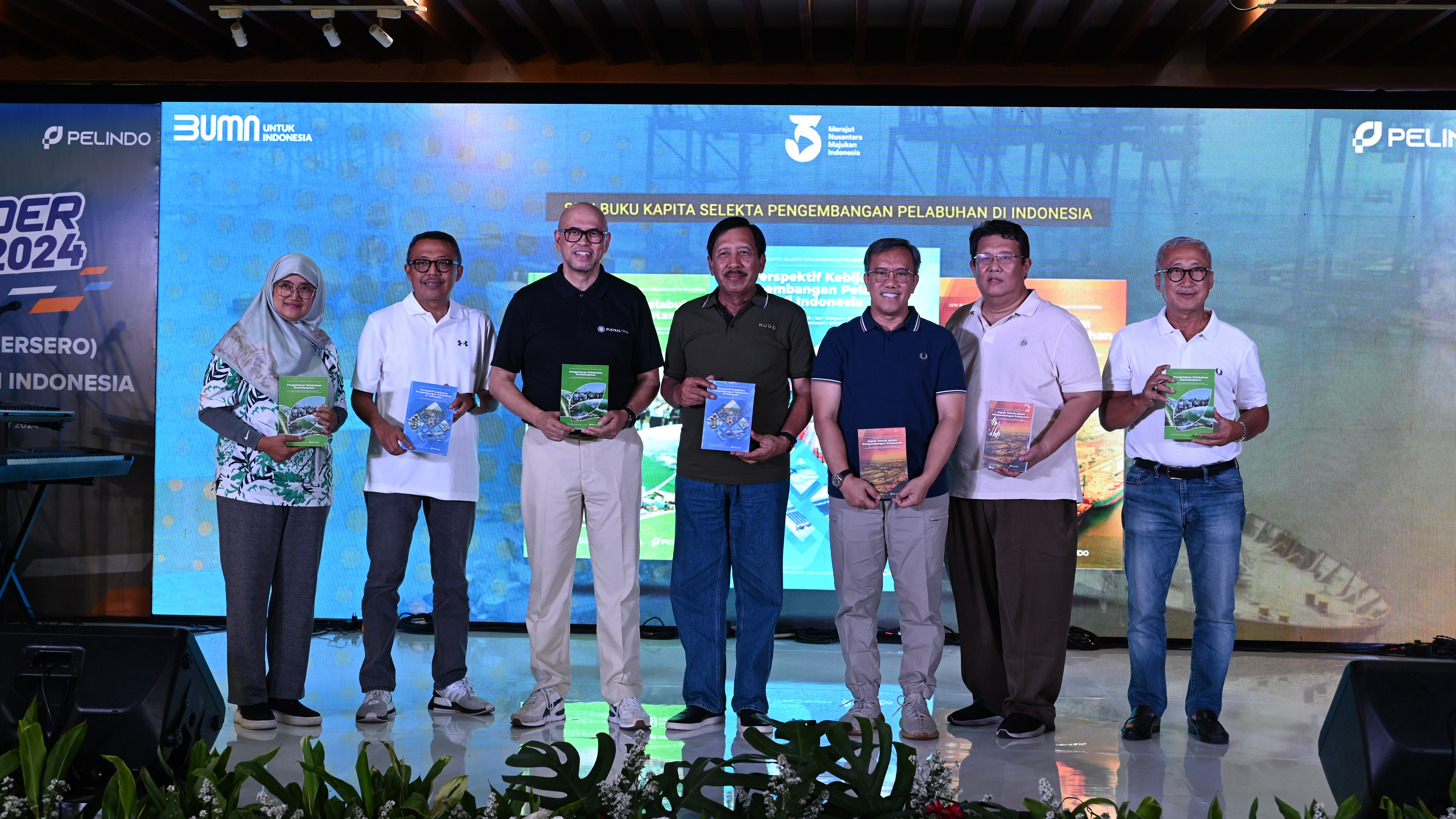
Pelindo Launches Capita Selekta Book Series on Indonesia's First Port Development
Jakarta, 14 October 2024 - PT Pelabuhan Indonesia (Persero) or Pelindo launched the Capita Selekta Book Series of Port Development in Indonesia during the Pelindo Stakeholder Gathering & Book Launching at the Royale Jakarta Golf Club, Saturday, 12 October 2024. This book is the first book in Indonesia that examines port management from 3 aspects including aspects of port development policy, aspects of sustainable port management, and technical aspects of port development.
The book is the result of collaboration between Pelindo and the Centre for Transportation and Logistics Studies (Pustral) Universitas Gadjah Mada (UGM). The book consists of three editions, namely Book 1: Policy Perspectives on Port Development in Indonesia, Book 2: Sustainable Port Management, and Book 3: Technical Aspects of Port Development.
Pelindo's Director of Human Resources (HR) and General Affairs, Ihsanuddin Usman said that the presence of this book was due to the hard work of 58 authors from institutions in Indonesia and abroad, reviewed by independent reviewers from various partners and associations, and edited by 3 professor editors, namely Prof. Dr-tech. Danang Parikesit, MSc(Eng), IPU, APEC.Eng, Prof Raja Oloan Saut Gurning, S.T., M.Sc., Ph.D, and Prof Sari Wahyuni, S.I.P., M.Sc., Ph.D.
‘We together with academics discuss how the discourse on port development does not stop only at Pelindo and strategic partners, but continues to encourage discussion, especially involving the younger generation so that in the future port development becomes a strong sapta guru for Indonesia as an archipelago,’ said Ihsanuddin when giving an opening speech launching the Kapita Selekta Book.
To realise an integrated maritime ecosystem, the Port cannot stand alone, but must synergise with all business actors and regulators in the maritime ecosystem.
This is what motivates Pelindo and Pustral UGM to work together by involving stakeholders, regulators, customers, and academics in the port, maritime and logistics sectors, to conduct knowledge sharing related to best practices in port management and the preparation of the book.
In this edition of Book 1, it comprehensively discusses policy, policy perspectives including economic, legal, regulatory aspects and understanding the port and logistics performance measurement index. Then, the Book 2 edition examines in depth several issues related to sustainable port management, business sustainability through strategic alliances at port terminals in Indonesia, forecasting studies of port usage needs, and comparative studies of the world's best ports, especially in terms of port sustainability.

